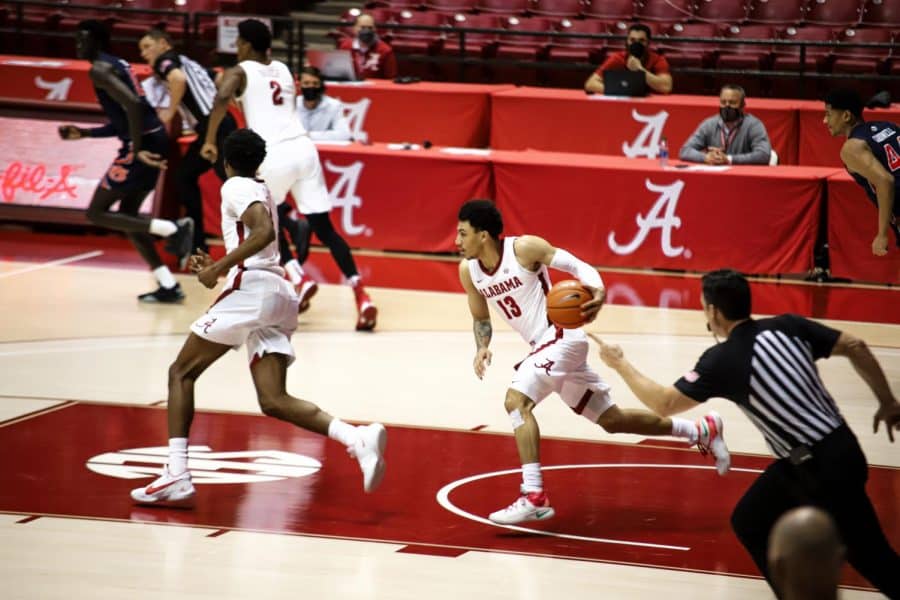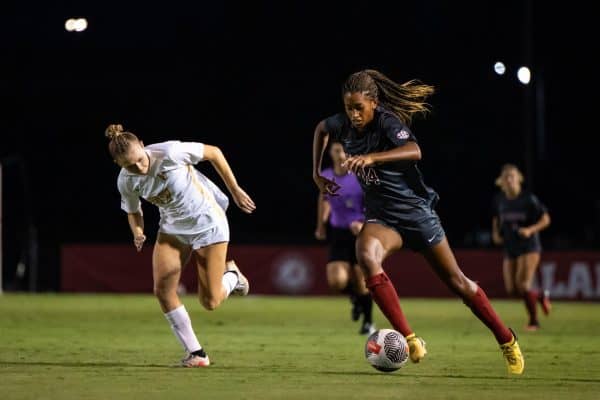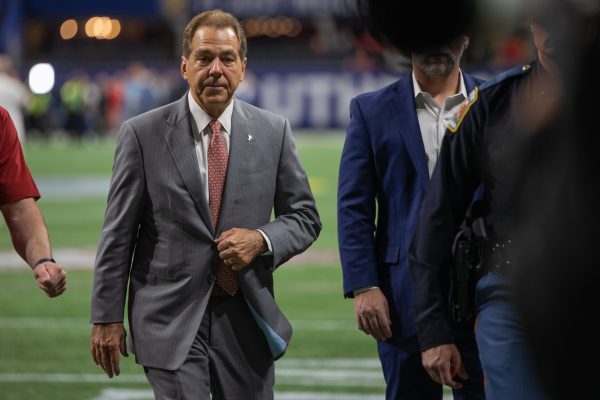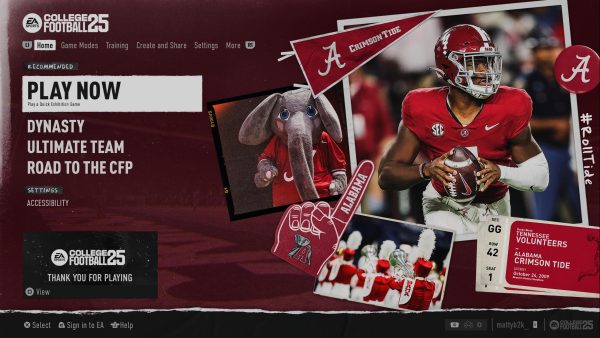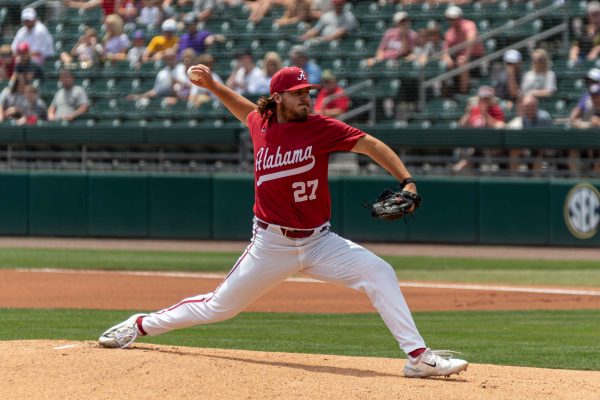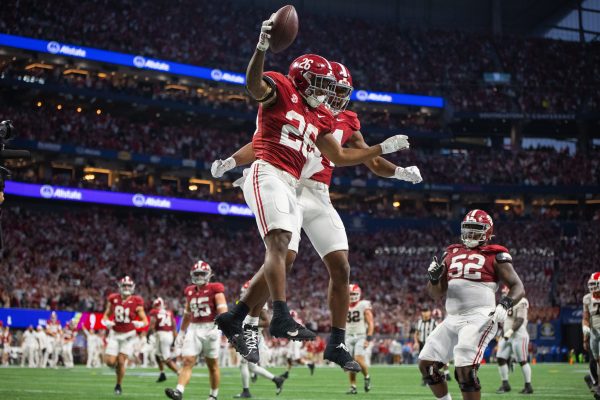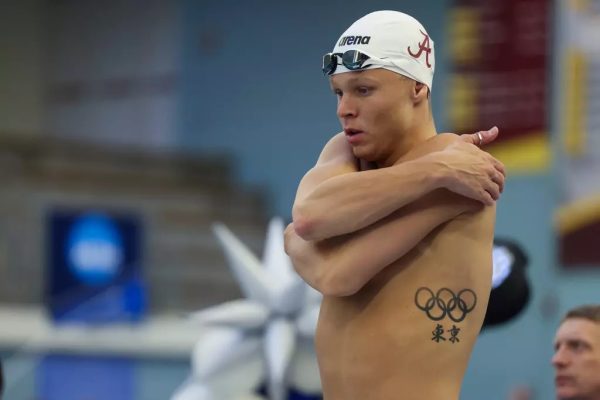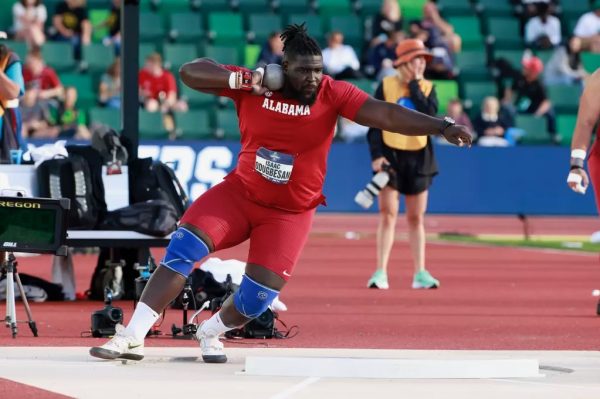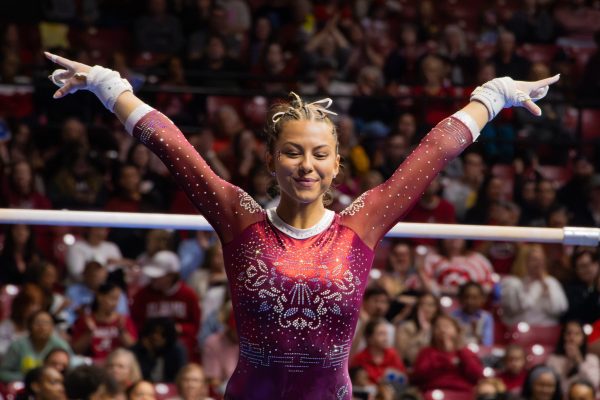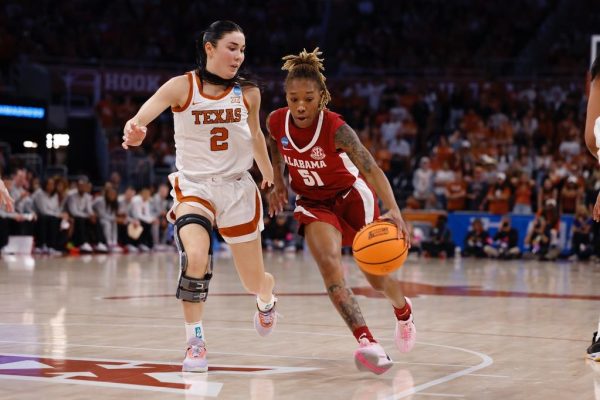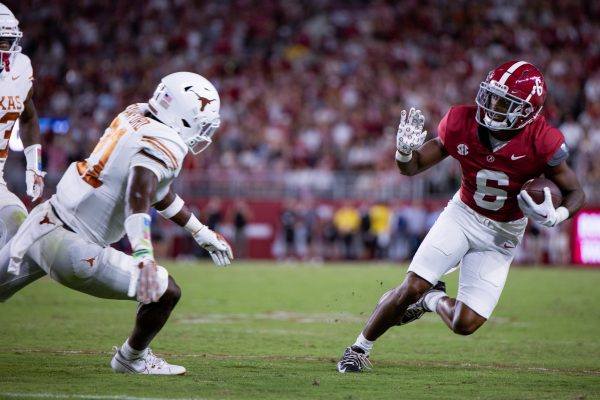Not NCAA Property: How Jahvon Quinerly fought his way to stardom
Jahvon Quinerly wanted to attend the University of Arizona. Then the FBI got involved.
March 24, 2021
Coming out of high school, Alabama sophomore guard Jahvon Quinerly was a top-50 prospect on every major recruiting website. A five-star talent and one of the stars of the viral group “Jelly Fam,” Quinerly was constantly featured on Instagram and YouTube for his unreal finishes at the basket.
Quinerly was recruited by almost all of the “blue blood” college teams, including Duke and Kansas. But after meeting with then-Arizona Wildcats assistant coach Emanuel Richardson, Quinerly verbally committed to Arizona in early August 2017.
Then, Richardson was arrested for federal bribery, fraud and other corruption charges.
According to an ESPN report, FBI documents state that a $15,000 bribe was given to “Player-5,” who at the time was verbally committed to Arizona in August.
Quinerly was never publicly mentioned in any FBI report and was never formally investigated by the FBI, but the taint from Richardson’s criminal behavior was enough to get Quinerly to decommit from Arizona. Coach Nate Oats defended Quinerly and his family’s reputation before Alabama’s NCAA Tournament game against Iona.
“Him and his family got drug through the mud through [the FBI scandal],” Oats said. “If you look at everything that came out, the court proceedings, they had nothing to do with any of it. They never took any money, they never asked for any. If you knew his parents, they’re stand-up people. His dad is a policeman in New Jersey. His mom is a great lady.”
Making a sacrifice
After decommitting from Arizona, Quinerly decided to attend Villanova, where he would ride the bench his entire freshman season. Quinerly became increasingly frustrated with the Wildcats and took to Instagram shortly after a game where he played less than 10 minutes.
“Was my second choice for a reason,” the Instagram post said.
After a back-and-forth season, Quinerly decided to move on and enter the transfer portal in early April 2019.
“I lost the love for the game, and that’s why I decided to transfer,” Quinerly said before the 2020-21 season. “I just didn’t fit their system. I kinda wanted to play in a fast-paced system that Oats presented to me.”
Tuscaloosa became his next destination, but there was one thing standing in the way: the NCAA.
In October 2019, Quinerly was denied a transfer waiver, which would have allowed him to play at Alabama in the 2019-20 season. Once again, the star guard had to take a back seat and watch from the bench. Oats was with Quinerly when he got the news.
“We were all disappointed. I thought he had as good a case as any,” Oats said. “What their family went through with the stuff that was said that was untrue about them, you would’ve thought the people on that committee would’ve shown a little compassion for what the family had been through.”
Oats said at a press conference last week that Quinerly had seen a counselor to seek help for his mental health. But sitting out last season was not all bad for Quinerly. He said he appreciated the opportunity to face now-NBA point guard Kira Lewis Jr. in practice every day and to watch SEC games from the sidelines.
“To be honest, in the beginning, it was tough for me,” Quinerly said. “Just the reality of not being able to play, not being able to play with my teammates. I feel like once the season really started, I’m still practicing with guys, going head to head with Kira Lewis every day in practice. It gave me a different perspective: This happened for a reason. I just took advantage of it. It all played a huge role in who I am today and how far I’ve come. I took it as a positive.”
Rise to stardom
Looking back at this season, Quinerly has shown growth at the highest level. Quinerly was in the starting lineup but slowly moved to a sixth-man role, where he took command of the second unit throughout the season. Quinerly showed no objection to what most would call a demotion. He actually thrived in his new situation. His sacrifice to come off the bench paid off when he won the SEC Tournament MVP award. To Quinerly, this award meant more than just a title win.
“I’ve been through a lot these last couple years, so being blessed to be named the MVP of the tournament, it’s just a blessing,” he said after the SEC Championship game. “And I’m just so happy my family got to watch. All credit to my teammates. Without them, I wouldn’t have really won it. So the confidence that they put in me, we just all believe in each other. It’s just a great group of guys. The feeling, I can’t really explain it, but it’s an amazing feeling.”
One thing that he and others missed out on by choosing to play college basketball was profiting off of his name and likeness. Last week players across the NCAA took to social media to begin the #NotNCAAProperty movement. Quinerly more than anyone else knew what it meant to be in the hands of the NCAA. He joined the movement and published the following statement:
“Though I am completely focused on competing with my teammates going forward, I must say since it is a topic of discussion, the NCAA has not allowed me or my brothers to profit off of our global ‘Jelly Fam’ movement that took social media by storms years ago. This is a movement that has the potential to not only put ourselves in better positions financially but our families as well. Meanwhile, people were able to make their own profits off our movement since we could do nothing with it in order to keep our NCAA eligibility alive.”
Others are currently profiting off of the “Jelly Fam” name. There are multiple stores that sell shirts related to the original nickname and logo. Quinerly can’t take any money from those sales.

